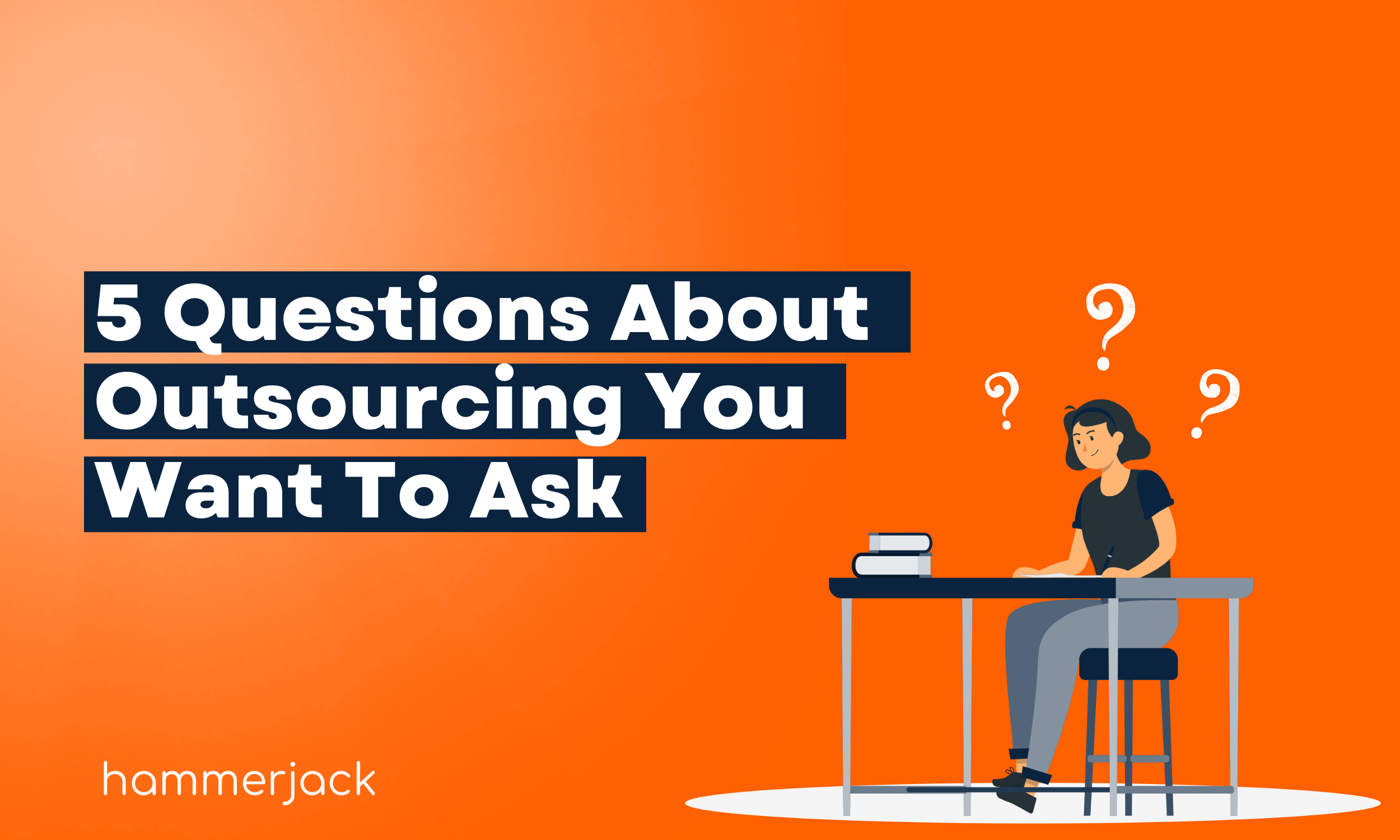5 Questions About Outsourcing You Want To Ask
Whether you’re a small business, a start-up or a seasoned business owner, “outsourcing” may have become a reoccurring thought for you in recent times. You may have started researching it but that’s as far as you’ve progressed. Or you may have heard colleagues talking about it at industry events. In any case, we know you’ve probably got questions and we’re here to answer them.
Here are some of the most common questions we get asked:
Won’t I lose control of my business?
Actually, just the opposite! Outsourcing takes the roles (that aren’t vital to growing your business) away from you and lets you concentrate on more important aspects of your business. You can now focus on areas such as strategy & planning, partnerships, and business development; not the noise created by back office, admin, and bookkeeping. By outsourcing, you free your time and attention to concentrate on what actually needs to be done. Your level of involvement with your outsource provider will vary depending on a model you’ll take too.
Why should I outsource when I could just hire in-house?
Outsourcing saves you from the exhaustion that comes from recruiting candidates yourself, providing them the support they need, and making sure they are motivated and retained. It also allows you to scale quickly and find trained specialists ready to hit the ground running.
Remember the “model” mentioned in the 1st question? There are different types of outsourcing models available to suit your needs. The one that would simply give you additional staff is commonly referred to as staffing or seat leasing. This is where the outsource provider will source qualified individuals based on your needs, provide them a seat and everything else they would need (computer, payroll and HR support, employee engagements, etc.). You will provide their training and manage their day-to-day activities. They work at the beat of your drum.
On the other hand, a managed service model completely takes the task of training and transitioning your business processes out of your hands. The outsource provider will first understand your business, your goals, and your level of involvement, then proceeds to tailor-fitting a solution for you. Afterwards, the outsource provider will hire a team dedicated to your business, train and manage them, and provide them with full admin and management support.
Lastly, and not offered by every outsource provider in the market, there are plug-and-play solutions. This is where your business can access a pool of shared resources to do those common yet time consuming tasks. The solution is up and running within a shorter time period as the staff are completely trained and ready to go! This new offering is low-cost and quick-start with no lock-in contracts. Read more about our Lite Solutions.
What tasks should I start outsourcing?
The answer to this totally depends on your needs and goals. Typically, small businesses outsource those which aren’t part of their core business. These usually include finance and accounting tasks (e.g. bookkeeping, payroll, and collection of unpaid invoices), back office and admin work, customer service and live chat. Whilst all of these roles are important, they are also time consuming. Time that would be better spent on growing your business.
I’m just a small business. Can I outsource?
Sure! Lots of small business owners look at outsourcing as a way to scale their business and remain competitive. Business size doesn’t really matter in outsourcing; what’s crucial is knowing when to outsource. When you start noticing your onshore team aren’t being as productive as they could be or you want to start hiring more specialised roles [READ: Who’s On Your Side?] so you can leverage against the ‘big guys’, that’s the moment to outsource.
More importantly there are outsource providers that cater primarily to small to midsize businesses. Providers like hammerjack ensure that solutions and packages are accessible to small to medium businesses: low cost, quick start up, and no lock-in periods. You’ll also get experienced and skilled individuals working for you without the hassle of hiring and retention
So… Where do I actually start?
You start by identifying your goals and motivations for outsourcing. This could be to free your time and attention to redirect these to development, generating more business, or to gain an edge over the competition.
Once you’ve identified these goals, it’s time to look at the pain points of your business. Where do you see the most inefficiency? What part of the process renders redundancy? What causes customer dissatisfaction? These are only few of the many questions you should be asking when evaluating your business.
Want tips how to choose an outsource service provider? Read Does Your Outsource Service Provider Have These 3 Things?
Then once you’ve decided to outsource, ask yourself: Should you outsource? To check, look at: Should You Outsource? 4 Things to Consider First
Outsourcing isn’t difficult but you need to ask the right questions first. The questions above are some of the most common ones out there, but we know you have more. So start by talking to one of our experts on outsourcing here for free.
We’re here to help.
Also read:
Are You An SME? Here’s Why Outsource Staffing Might Work for Your Business

